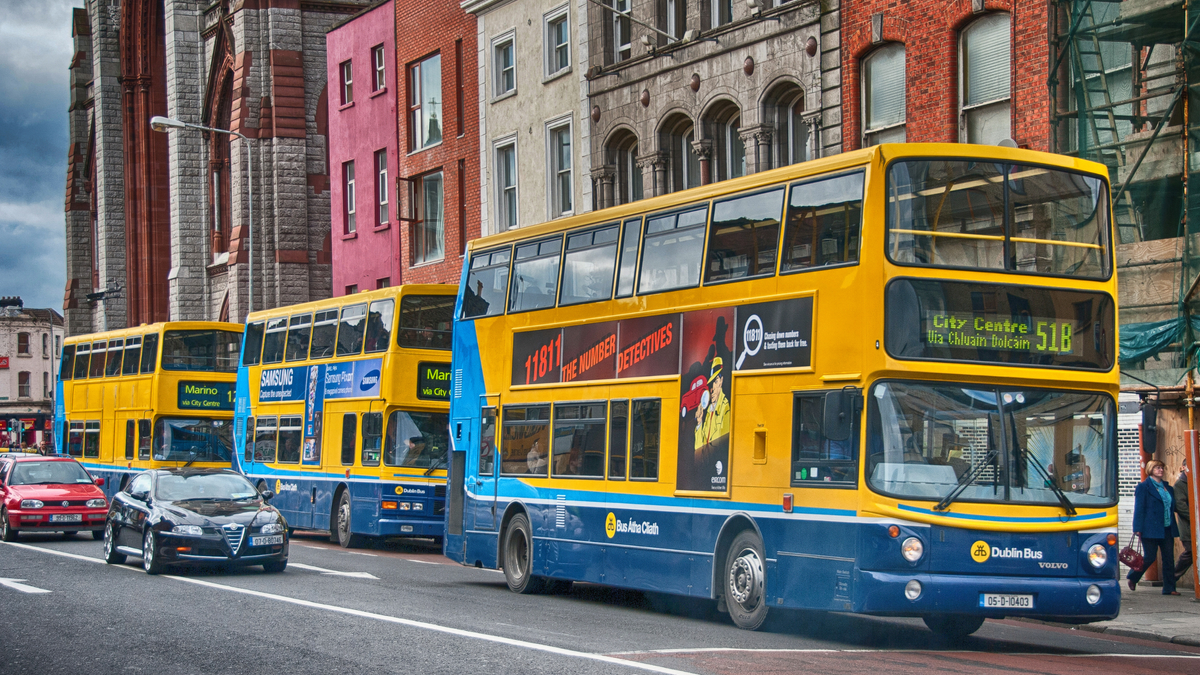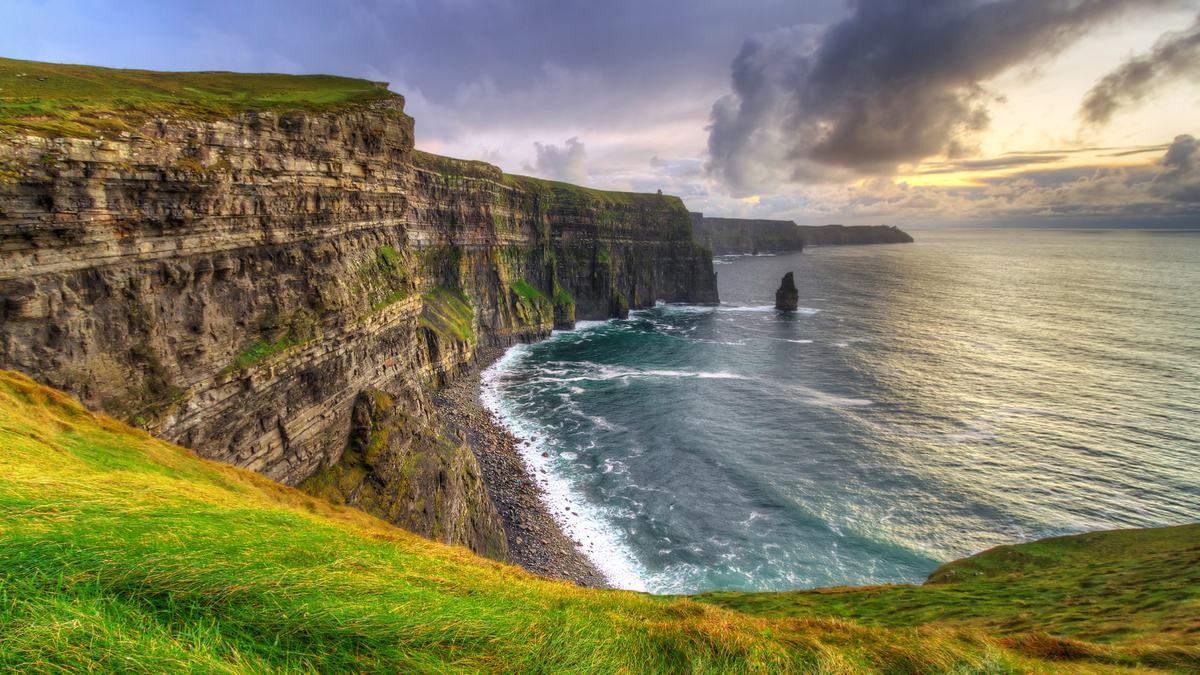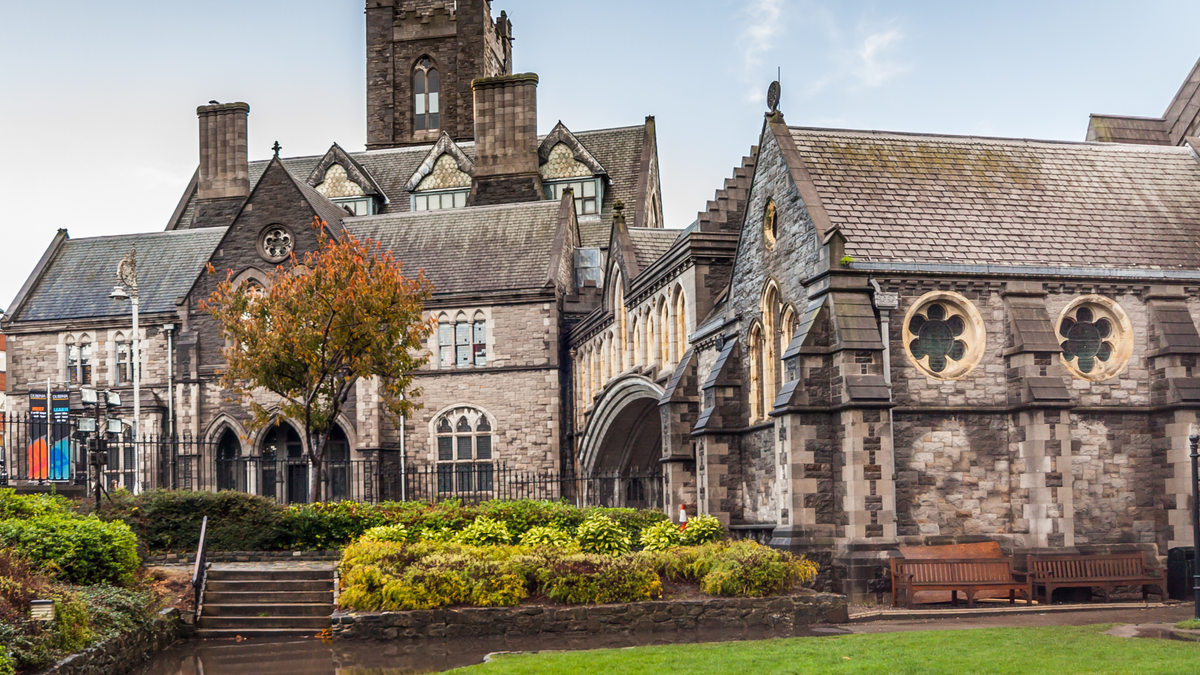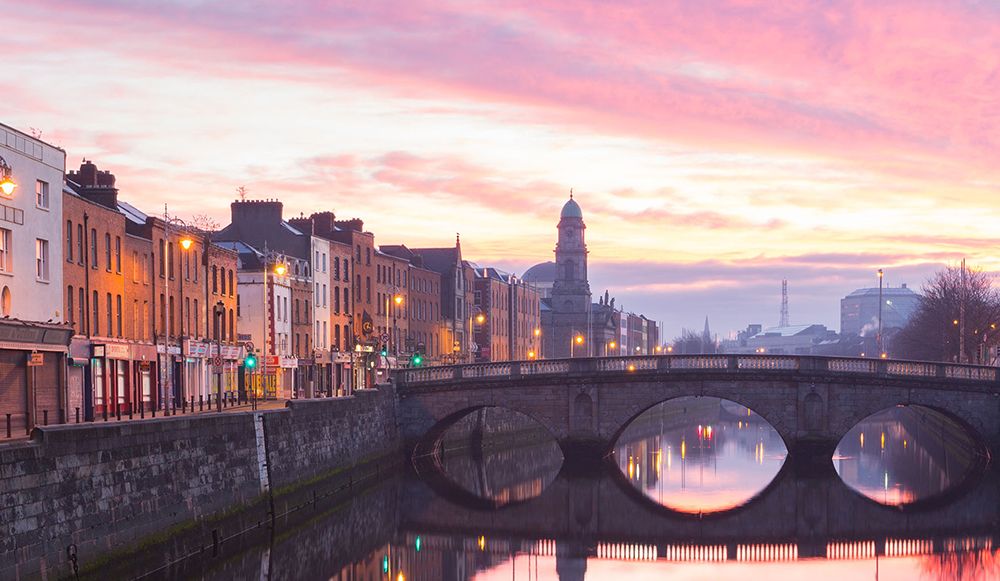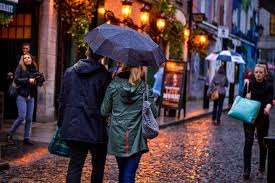What To Know Before Visiting Dublin, Ireland: Travel Guide
In this Dublin visitors guide I will cover everything you need to know before you go—which attractions to explore, where to stay, planning your daily budget and more.

What To Expect When Visiting Dublin
Language: The primary language in Dublin, Ireland is English, though you may hear Irish (Gaeilge) used on signs and in some conversations. Almost everyone in Dublin speaks English fluently.
Currency:
The currency in Dublin, Ireland is the Euro (€).
Using Your Credit/Debit Cards:
Dublin is highly card-friendly. Most places, including small cafes and taxis, accept contactless payment. ATMs are widely available, but it's a good idea to carry some cash for small vendors or markets.
Electric Outlets:
Ireland uses Type G electrical outlets. The standard voltage is 230V with a frequency of 50Hz. Bring a universal adapter and voltage converter if needed for hair tools.
Here's a photo of what the plug you need to use should look like.

How Many Days Do You Need To Explore Dublin?
Most visitors spend 3 to 4 days in Dublin, Ireland.
- Minimum: 2 days if you want to hit major attractions like Trinity College and Temple Bar.
- Comfortable Exploration: 4 days allow time for museums, parks, and maybe a short day trip nearby.
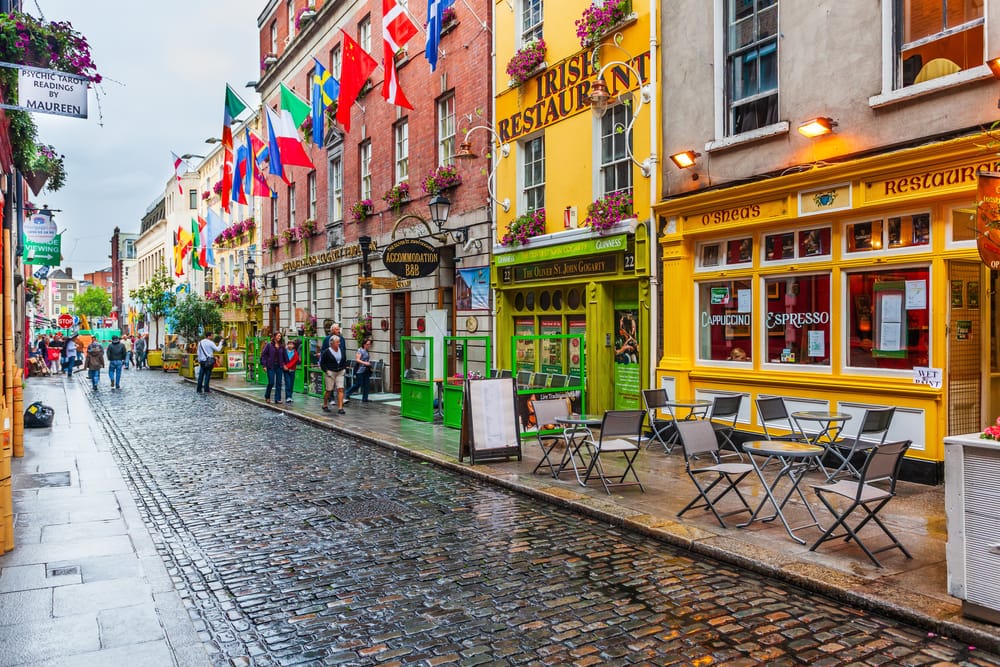
Have a layover, or just looking to be a weekend warrior? Check out my recommended way to spend 2 days in Dublin.
When is the best time to visit Dublin for good weather?
The best time to visit Dublin, Ireland is between May and September. During these months, you get the best chance of warm weather, longer days, and lively outdoor events. Winters (November–February) are cold, rainy, and daylight is very limited, but it’s a magical time for holiday lights and lower prices.
- Spring (March–May): Mild and blooming parks.
- Summer (June–August): Best weather; ideal for festivals.
- Autumn (September–November): Crisp air, colorful foliage, fewer crowds.
- Winter (December–February): Cold, wet, short days, but festive vibes.
Important Notes:
- Rain can happen any time, so bring a waterproof jacket.
- Summer is peak tourist season, but also the most expensive.
Seasonal Tourism In Dublin, Ireland
- Peak Season: June to August – Most expensive; hotels book early.
- Shoulder Season: March to May, September to October – Best balance of cost and experience.
- Off-Season: November to February – Cheapest prices, but expect rain and cold weather.
Transportation & Getting Around Dublin
Getting around Dublin is easy:
- Public Transport: Dublin Bus, DART trains, and LUAS trams are reliable and affordable.
- Leap Card: Get a Leap Card for discounted fares across buses, trams, and trains.
- Walking: Dublin city center is very walkable.
- Taxis & Rideshares: Readily available but pricier; Uber operates differently here (they send licensed taxis).
- Bikes: Dublinbikes rental scheme is great for short distances.
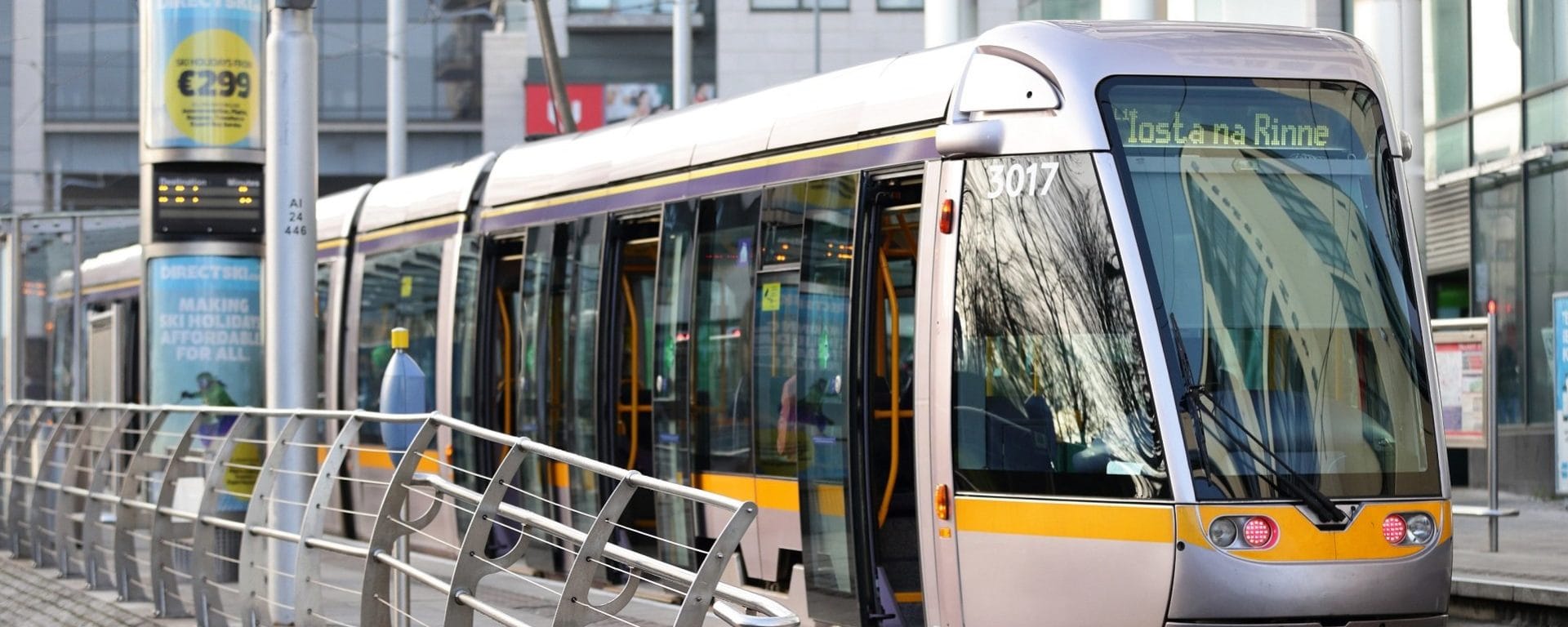
Discover all you need to know about getting around during your visit from Dublin. There's great public transpiration options to help you explore the city, and the rest of the country with ease.
Dublin's Top Activities & Attractions
- Visit the historic Trinity College and view the Book of Kells.
- Explore Guinness Storehouse and learn about Ireland's iconic brew.
- Walk through Phoenix Park, one of the largest urban parks in Europe.
- Discover Irish history at Kilmainham Gaol.
- Wander Temple Bar and experience the lively pub culture.
- Admire St. Patrick’s Cathedral, Ireland’s largest church.
- Tour the Jameson Distillery Bow St. for whiskey lovers.
- Learn at the EPIC The Irish Emigration Museum.
- See masterpieces at the National Gallery of Ireland.
- Shop on Grafton Street.
- Experience the vibrant atmosphere at Croke Park Stadium.
- Take a peaceful stroll along the Grand Canal.
- Visit the Little Museum of Dublin.
- Attend a live show at the historic Abbey Theatre.
- Explore the Dublin Castle grounds and museums.
Discover Dublin's Best Museums To Visit
Best Hidden Gems To Explore In Dublin
- Marsh’s Library: A stunning untouched 18th-century library.
- Iveagh Gardens: Secretive park tucked behind Stephen’s Green.
- The Brazen Head: Ireland's oldest pub dating back to 1198.
- The Hungry Tree: A tree eating a bench at King’s Inns Park.
- Science Gallery Dublin: Thought-provoking exhibitions.
- Poolbeg Lighthouse Walk: Stunning coastal walk few tourists know.
- Blessington Street Basin: Hidden oasis perfect for a quiet break.
- The Cobblestone: Authentic traditional Irish music pub in Smithfield.

If you would like to get out of the city for a day or two, check out this list of the best day trips to explore while visiting Dublin.
Best Dublin Neighborhoods For Visitors To Stay In
Dublin has many excellent areas for travelers, depending on what you're looking for:
- Temple Bar: Central, lively, perfect for nightlife enthusiasts (most expensive).
- Georgian Dublin: Elegant, historic, and charming; known for classic architecture, museums, and a central location (mid-high range)
- St. Stephen’s Green: Upscale and sophisticated; near parks and shops (mid-high).
- Smithfield: Hip, up-and-coming with great pubs and art (more affordable).
- Ballsbridge: Quiet, leafy, upscale with luxury hotels (high-end).
- The Docklands: Modern, stylish, near tech hubs and the river (mid-range).
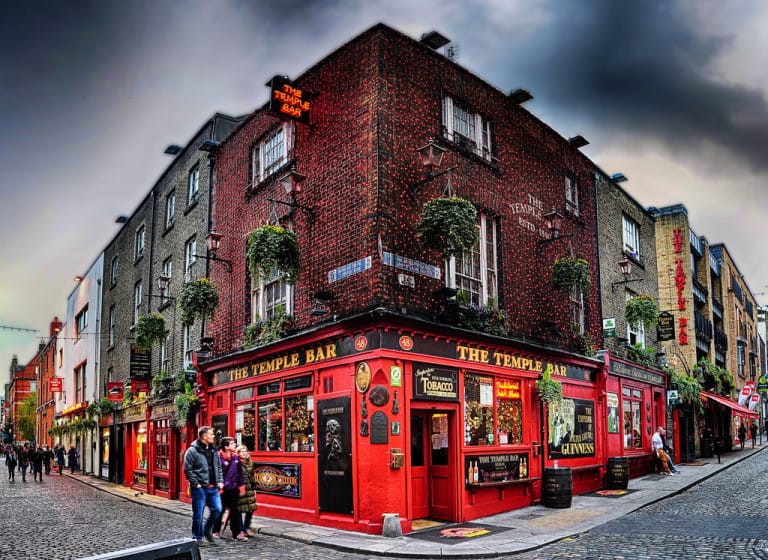
Check out this article for a complete breakdown of all the best neighborhoods in Dublin for visitors to stay in, and what you can expect the vibe and experience of each to be like.
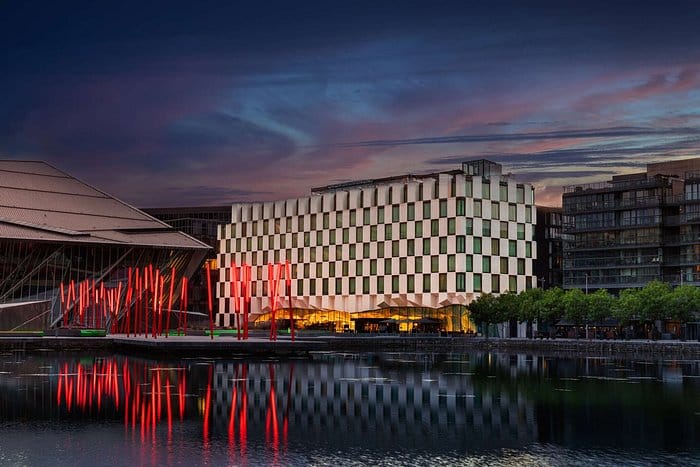
Looking for a luxury stay while in Dublin? Check out the cities most luxury 5 stay accommodations.
What Is The Food Like In Dublin, Ireland

Dublin's food scene offers hearty, comforting dishes and a growing contemporary culinary movement. Expect delicious seafood, classic Irish stews, soda bread, and boxty pancakes. Dublin also boasts many Michelin-starred restaurants and inventive cafés. Traditional pubs serve authentic Irish meals while food markets like Temple Bar Food Market offer fresh local produce. Your eating experience will range from cozy pub lunches to fine dining rooted in Ireland’s farm-to-table ethos.

Travel Budget Needed & Cost
Dublin, Ireland is moderately expensive compared to other European cities.
- Average daily budget for mid-range traveler: $140–$180 USD
- Budget traveler: $80–$120 USD per day (hostels, budget meals)
- Luxury traveler: $300+ USD per day (luxury hotels, fine dining)
There are affordable options like hostels and budget eateries, but prices can climb quickly if you stay in city-center hotels and dine in touristy spots.

On A Budget? Fill your Dublin travel itinerary with these top free things to do to say money while exploring the city.
Safety In Dublin, Ireland
Dublin is generally a safe city, but be mindful of:
- Pickpockets, especially around Temple Bar, Grafton Street, and buses.
- Taxi scams, overcharging late-night tourists without using the meter.
- ATM skimming, so use ATMs inside banks.
- Late-night pub rowdiness, mostly harmless but good to avoid alone if intoxicated.
Overall, Dublin, Ireland is a safe place to visit — just keep your wits about you as you would in any big city.
Is January a good time to visit Dublin, Ireland?
January is the slow season in Dublin, Ireland. Expect cold, wet weather and short days, but major savings of up to half the price on accommodations and fewer crowds at major attractions.
Is Dublin Safe For Solo Female Travelers?
Yes, Dublin, Ireland is considered safe for solo female travelers. Stick to well-lit areas at night, be cautious with your drinks, and use licensed taxis or public transport.
What Kind Of Traveler Will Love Visiting Dublin?
Dublin, Ireland offers a perfect mix of historic charm, dynamic arts, world-class pubs, and welcoming locals. History buffs, literature lovers, foodies, and music fans will all find something unforgettable.
Does Dublin, Ireland have a lively nightlife scene?
Absolutely. Dublin is famous for its lively nightlife, from traditional Irish pubs to energetic nightclubs, making it a great destination for those seeking lively evenings.
Looking for other Dublin Travel Information?
Not A Member? ✈️
Save 40%-95% On Flights With Jetsetter Alerts Airline Mistake Fare & Flash Sales Alerts!
